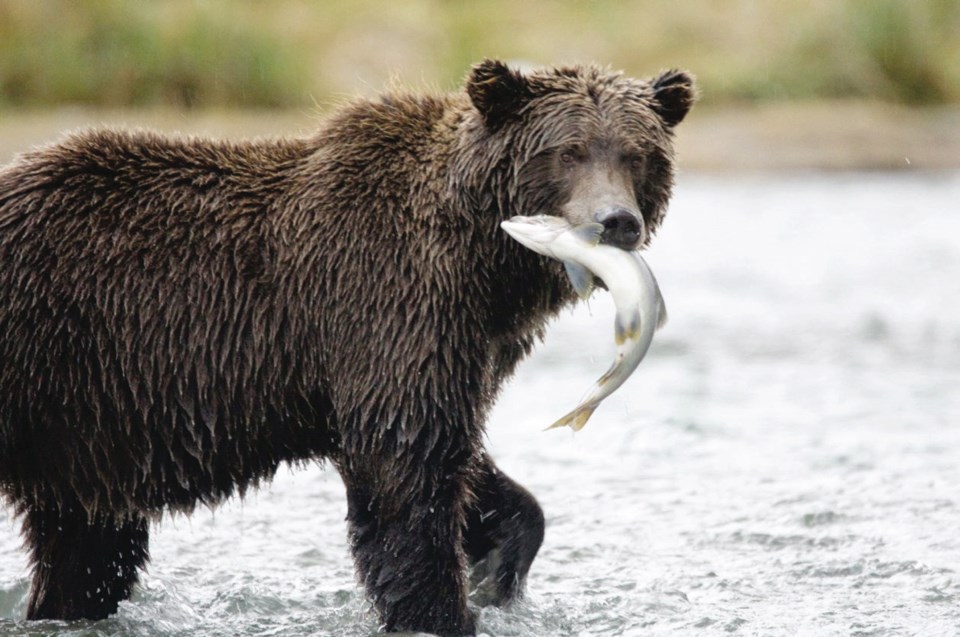The B.C. NDP government acted on another campaign promise Monday by cancelling the grizzly bear trophy hunt across the province while still allowing people to kill the bears for meat.
The change, which takes effect at the close of this year’s hunting season on Nov. 30, also bans all hunting of grizzlies within the Great Bear Rainforest.
Natural Resources Minister Doug Donaldson said the move honours the wishes of most British Columbians, while recognizing the economic opportunities associated with eco-tourism and bear viewing.
“People in the province have come to their understanding, their point of view, that trophy hunting of grizzly bears is not a socially acceptable practice in B.C. in 2017,” he said.
Donaldson said this season’s hunt will go ahead because permits were issued this summer.
“The main factor was the long delay where we had a place-holder government of four months,” he said. “During that time, the limited entry hunting tags were issued in June.”
The government said there are about 15,000 grizzlies in B.C. and that hunters kill about 250 every year.
Donaldson was unable to say how many of those 250 bears will be saved by cancelling the trophy hunt.
He also was unclear how the ministry will enforce the policy and prevent trophy seekers from simply pretending to hunt for meat.
“I’m very confident in speaking with the staff that we have that we’ll have the mechanisms and regulations in place in order to ensure that there aren’t any loopholes,” he said.
“Hunters will no longer be able to possess the hide or the head or the paws of the bear, so we feel quite confident that this announcement will mean the end of the grizzly bear trophy hunt through the province.”
B.C. Green Party Leader Andrew Weaver welcomed the moratorium on hunting in the Great Bear Rainforest, but said the rest of the NDP announcement will please no one.
He said environmentalists will be unhappy that grizzlies will still be hunted for meat and hunters will be unhappy that they are unable to harvest the entire animal.
“What they’re trying to do is have their cake and eat it too,” Weaver said. “They’re trying to appease environmentalists and at the same time trying to not offend hunters. What they’re going to do in this case is offend everybody.”
Environmental groups were more supportive. Joe Foy of the Wilderness Committee said he was “pretty darn happy” at the news.
“A lot of other places have banned those things,” he said. “They’ve banned the elephant hunts and the rhino hunts and the God awful things that used to happen and it’s high time we did the same.”
The Raincoast Conservation Foundation hailed the ban in the Great Bear Rainforest, but reserved judgment on the decision to allow grizzly hunting for meat until more details are available.
Chris Genovali, executive director, said ensuring a food hunt would mean that hunters have to surrender the trophy parts -- head, hide and paws -- to provincial wildlife authorities.
“That said, virtually no one legitimately hunts grizzlies for food,” he said. “Killing these bears is strictly a trophy hunt.”
Donaldson said he will consult with First Nations and other groups this fall about the mechanics of ending the trophy hunt.



